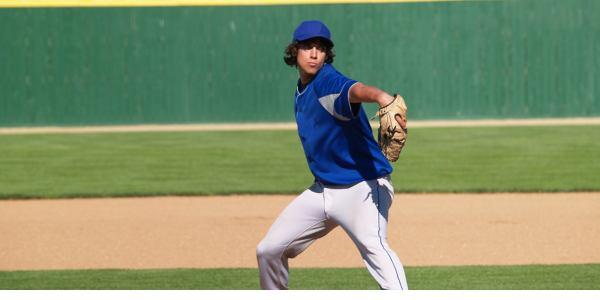Do Your Sports Kids Not Get Enough Playing Time?
Successful athletes often make sacrifices. Yet, one of the most challenging sacrifices for some athletes is accepting their role on the team.
Players’ roles can frequently change due to injuries, roster shake-ups, changes in playing style, coach preferences, or a new team members’ successes.
When young athletes are relegated to a backup role or have their playing time reduced, they can have difficulty adjusting to their new role.
They will say they worked hard to build their skills and hone their game. They’re talented and have been important contributors to the team. They played a lot better than most of their teammates in practice, they’ll tell you.
Often, young athletes who have had their role changed feel they deserve to start or earned the right to play. They may question why another player receives more playing time. They may think their coach is unfair or has something against them personally.
This type of negative thinking can hurt kids’ performance, and it also sparks negative energy on the team. Negative attitudes hurt the team and hurt sports kids’ standing in their coaches’ eyes.
It’s clear that young athletes can’t complain their way to the top. What can they do instead?
First, even when kids’ roles have changed, they can still be team player and improve their game. They can:
- Learn by watching. They can develop their game and better understand strategy by watching others compete.
- Push their teammates. When athletes push their limits in training, they also push their teammates to become better. This mentality fosters team play and cohesion.
- Hone their skills. Even though they have less playing time, they can take advantage of the opportunities in practice to develop their skills through focused repetition.
- Showcase their abilities. Each practice, kids have the opportunity to display their skills, work ethic, and positive mindset. This can lead to more playing time.
- Contribute to teamwork. Just as negativity infects a team’s morale, positivity can improve the collective mindset.
Remind kids to keep in mind that a team’s success results from all players pulling in the same direction toward a common goal.
Take, for example, shooting guard Nik Stauskas. Stauskas entered the NBA after being drafted No. 8 overall in the 2014 NBA Draft by the Kings. Stauskas found himself battling for playing minutes and never lived up to his potential as a rookie.
Stauskas bounced around the league, playing for eight different teams, which affected his effort and energy. In 2022, Stauskas contemplated retirement.
However, after he had a 10-day successful stint in the NBA ‘G’ League, Stauskas was signed to a two-year contract with the Boston Celtics. Stauskas has since decided to accept his role, contribute wherever he can and maintain a positive attitude.
“I just have a different appreciation now for being in this [situation], having this opportunity,” he said. “Trying to make the most of it. If I’m not going to play, I’m going to be the first guy waving the towel, pumping everyone else up. For me, that’s growth because that’s something that I wasn’t willing to do just a couple years ago in my first stint in the league.”
When kids define and accept their roles on a team, their motivation stays high. They become valuable team assets when they approach each practice and game with a positive mentality.
It’s easy to complain, but complaining does nothing to improve young athletes’ circumstances. Instead, they can contribute to the team’s success in many ways.
Encourage young athletes to work on a mindset aimed at helping their team. Help them compile a list of how they can contribute to their team’s success as a leader, a challenger, coach-player, or a helper.
Young athletes should read this list before practice and commit themselves to being team players. Being good team members is just as important as scoring or winning!
Related Articles on Youth Sports:
- Sports Parents Should Be “Team Players” Too
- How Elite Teams Can Hurt Kids’ Confidence
- How Sports Kids’ Emotions Affect Teammates
*Subscribe to The Sports Psychology Podcast on iTunes
*Subscribe to The Sports Psychology Podcast on Spotify
The Composed Sports Kid

“The Composed Sports Kid” audio and workbook digital download program for young athletes and their parents or coach helps kids cope with frustration and anger in sports. Help your sports kids learn how to manage expectations and let go of mistakes so they can keep their head in the game.
The Composed Sports Kid system is really two programs in one–one program to train parents and coaches how to help their kids practice composure, and one program that teaches young athletes–ages 6 to 13–how to improve composure, let go of mistakes quickly, have more self-acceptance, and thus enjoy sports more!

